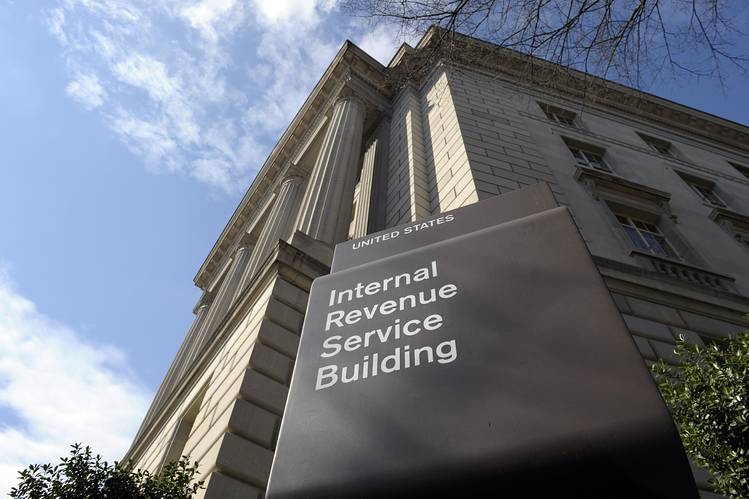Americans Give Up US Citizenship in Record Numbers
Record numbers of Americans gave up US citizenship in 2013. As the IRS mafia becomes ever more hostile to its citizenry, Americans give up US citizenship in record numbers. In 2013, 3,000 Americans lined up at embassies around the world to renounce their citizenship and get Uncle Sam out of their pockets for good. This is an increase of well over 200% in the last year, up from 933 renunciations in 2012, 1,780 in 2011 and 235 in 2008.
Why did so many Americans give up US citizenship? The three most common reasons given were 1) the IRS, 2) the IRS, and 3) the IRS.
Let’s take a step back: America is about the only country in the world that taxes its citizens on their worldwide income, regardless of where they live. So long as you hold a U.S. passport, the IRS wants its cut. And the IRS has become very hostile in attacking American’s abroad and those offshore accounts, putting a number of them in prison over the last few years. Of course, these attacks are limited to average people and not big corporations, who have record amounts of cash offshore.
This attitude has resulted in some very unreasonable tax assessments. For example, I have met many people who have never set foot in the U.S., but whose parents wanted them to have a U.S. passport at birth, who have been caught in the IRS mill. Once in the government’s sites, they were forced to pay enormous fines and penalties, in addition to the tax due. Adding insult to injury, some of these people had their bank accounts seized and real estate sold at auction to pay in to the Obamanation.
Then there are the laws targeting offshore banks. If you are a U.S. citizen, you are not wanted at most financial intuitions. Of those banks that will do business with you, most will hit you with extra fees, such as $500 to open the account and a $300 per year special assessment to cover compliance costs.
Finally, there is the invasion of privacy. As an American, you have zero right to privacy in your financial dealings. In fact, nearly all offshore banks will report your transactions to the IRS.
- If an offshore bank fails to report your transactions, they are on the hook for major fines or being locked out of the banking system all together. Considering this risk, and the high cost of compliance, it’s no wonder that Americans are persona non grata.
HOW TO GIVE UP US CITIZENSHIP
If you are thinking of giving up your US citizenship, there are several hoops you must jump through. First, you don’t just show up at the embassy, burn your passport, give the ambassador the finger, and go along your way. You must complete a complex process and receive a renunciation letter before you are free. This might include an audit of your last 3 to 5 years of tax returns and an in-depth review of your finances to ensure you are paid-up.
- Before you open a new account as a free man or woman, the bank will want proof that you have renounced your U.S. citizenship. Even if you have a second passport, you must prove that you gave up your US citizenship. Therefore, getting this renunciation letter from the consulate is of the utmost importance. It also ensures the IRS will not come after you years later looking for more cash.
Second, you might need to pay an exit tax. If your worldwide assets exceed $2 million, or your average tax bill over the past five years has been more than $151,000, a tax may be due on unrealized capital gains.
Basically, you will be required to file a final U.S. return as if you have sold all of your assets for fair market value and you will be taxed on that gain the year you give up US citizenship. Calculating this cost to escape is simple for those who hold major stocks. If your assets include private investments, real estate that has not easily appraised, or you have other issues in determining fair market value, you could be in for a battle with the IRS.
Third, you must have a second passport in hand before you give up your US citizenship. If you give up your US passport and don’t have another ready and waiting, you will be a person without a country and it will become impossible to travel or immigrate.
If you don’t already have a second passport, there are three ways to get one.
By nationality or family history: If your parents or grandparents were born outside of the U.S., you might be able to get naturalized in their home country. For more information on this option, I suggest you read up at Live and Invest Overseas.
Earn your second passport through residency: If you move to a country like Ireland, Panama, Chile, New Zealand, or Singapore, you should be able to gain citizenship within 3 to 9 years (assuming the rules don’t change while you are waiting).
Of the residency programs that I have investigated, I believe the best is the favored nation’s residency permit linked to a teak investment in Panama. This requires a minimal investment of $15,000 and allows you to gain residency immediately. Citizenship should be processed in 4 to 5 years. For more information on this program, please contact me at info@premieroffshore.com.
Pay for it: You can purchase citizenship and a second passport from St. Kitts and Nevis, Dominica, and a few other nations. Most of the available programs require you to have no criminal history and cost anywhere from $165,000 to $300,000, depending on family size and other factors.
For a detailed description of the available economic citizenship programs, please see my Second Passports page. You will find the requirements and costs for Dominica and St. Kitts on this page. If you have issues in your past and need a more lenient jurisdiction, please contact me for a consultation.
I hope this information has been helpful. As the IRS becomes ever more hostile to its populace, I believe we Americans will have fewer and fewer escape and banking options. I also predict it will become very challenging to move assets out of the United States. If you would like to know more about how to give up US citizenship, please contact me at info@premieroffshore.com for a confidential consultation.









Leave a Reply
Want to join the discussion?Feel free to contribute!